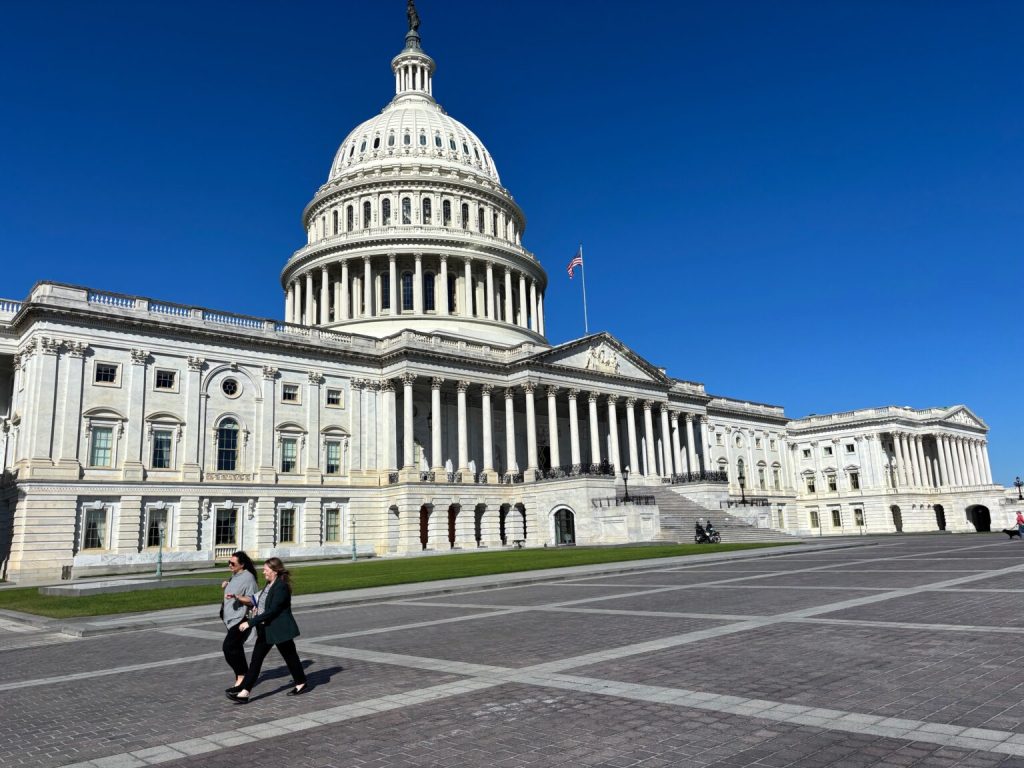Oregon poised to join most other states allowing governor to appoint vacant U.S. Senate seats
Published 6:31 am Wednesday, June 4, 2025

- Oregon is one of four states that leaves a Senate vacancy unfilled until a special election is held. A bill that’s passed the state House and Senate would change that. Shown is the U.S. Capitol on Oct. 9, 2024. (Photo by Jane Norman/States Newsroom)
Senate Bill 952 would allow the governor to appoint someone to fill a suddenly vacant U.S. Senate seat rather than wait for a special election
A bill allowing Oregon’s governor to appoint a U.S. senator for the state in the event of an unexpected vacancy is now a governor’s signature away from becoming law.
In a 31-24 vote, lawmakers in the Oregon House Tuesday passed Senate Bill 952. The legislation would give Gov. Tina Kotek, and any future Oregon governor, the authority to appoint someone from the same political party as the outgoing senator within 30 days of their passing away, stepping down or otherwise being unable to serve in their position. The appointment would expire whenever the former senator’s term ends or if a successor is elected, whichever comes first.
The legislation would end Oregon’s status as one of four states in which vacancies are left unfilled until special elections, without appointments from the governor.
Senate Bill 952 passed in the Oregon Senate in April in a 16-13 vote along party lines, with one dissenting Democrat, along with amendments that mandate a special election be set within 150 days following a vacancy.
Oregon lawmakers considered a similar effort in 2022 but failed to pass that attempt out of the Legislature.
“This is not a partisan issue,” said Rep. Hai Pham, D-Hillsboro, while introducing the bill Tuesday on the House floor. “It’s about making sure our state isn’t left on the sidelines when the stakes are high.”
Oregon Republicans, however, saw the measure as further entrenching power with Democrats and party insiders. Several spoke up on the House floor and said the process should be left up to voters.
“If this bill is passed and a senate vacancy arises, the governor can choose someone who has never run for office, never answered to the public, and never stood before voters to earn their trust,” said state Rep. Dwayne Yunker, R-Grants Pass. “What kind of accountability does that bring? The answer is none.”
House Minority Leader and 2022 Republican gubernatorial nominee Christine Drazan, R-Canby, told her colleagues that the bill was unnecessary.
“I personally have been through the process of running for statewide office. It is not easy, and it should not be,” she said. “It is grueling, it is humbling, it is demanding and it is appropriate that it be so.”
Oregon’s U.S. senators weigh in
Well before the state House’s vote on Tuesday, Oregon’s U.S. Sens. Ron Wyden and Jeff Merkley, both Democrats working beyond the standard retirement age of 65, had already signaled approval for the legislation. The two are part of one of the oldest Senates in U.S. history, where the median age of a member is just under 65.
Wyden, 76, and Merkley, 68, both sent letters to the state’s Senate Rules Committee April 2 encouraging passage of Senate Bill 952. Wyden, who has said he is running for re-election in 2028, wrote that under Oregon’s current rules Oregonians, “would have only half a voice in the U.S. Senate if our state lacked a senator because of death or injury for a prolonged period.”
Merkley, who has not announced whether he plans to run for reelection in 2026, echoed Wyden’s concerns, writing that waiting for a special election in the event of a vacancy would leave critical work undone.
Most states allow their governor to fill a U.S. Senate vacancy by appointment, with the appointee serving until the next regularly scheduled general election. Of the 13 states that require a special election to fill a U.S. Senate vacancy, nine allow the governor to make a temporary appointment. Oregon is one of four states that leaves a vacancy unfilled until a special election, according to the National Conference of State Legislatures.






